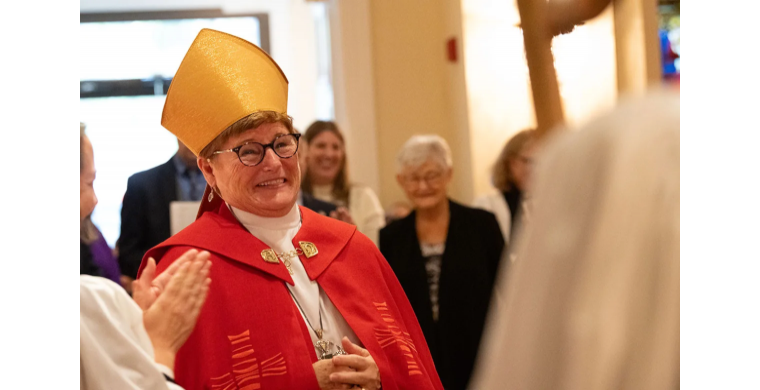Episcopal Chaplains Sought for 'Identity-affirming Spiritual Care'
By Jeffrey Walton
www.juicyecumenism.com
March 7, 2024
The Episcopal Church's House of Bishops Spring meeting held earlier this week at Camp Allen in Navasota, Texas included a brief update that readers may find of interest:
"The Rt. Rev. Ann Ritonia, bishop suffragan for Armed Forces and Federal Ministries, told the bishops that there are 104 Episcopal chaplains, including 94 in active military duty, seven ministering in Veterans Affairs, and three ministering in federal prisons. She emphasized the need to encourage vocations in military chaplaincy, particularly to ensure that LGBTQ+ service members have access to identity-affirming spiritual care."
To place these numbers in context, the Anglican Church in North America's Jurisdiction of the Armed Forces and Chaplaincy (the endorsing agency and canonical residence for professional chaplains with the ACNA and other participating Anglican bodies) has more than 300 chaplains, of which 187 are active duty military. This is despite being a smaller denomination than the Episcopal Church as measured by membership.
The largest Protestant denomination in the United States, the Southern Baptist Convention's North American Missions Board endorses more than 3,700 chaplains, while the (at least until recently) second largest, the United Methodist General Board of Higher Education and Ministry endorses about 1,700, of which one-quarter serve as military chaplains.
Beyond the number of endorsed chaplains, Ritonia's comments to the bishops illustrate where the Episcopal Church sees its role in this space: to ensure "access to identity-affirming spiritual care." This has become a major issue, as TRICARE (the uniformed services health care program for active duty service members) covers hormone therapy for gender dysphoria. TRICARE generally doesn't cover these surgeries, but the program's website notes that "active duty service members may request a waiver for medically necessary gender affirming surgery."
According to the Congressional Research Service:
"In 2016, the RAND Corporation estimated that approximately 1,320 to 6,630 of the 1.3 million active duty servicemembers identified as transgender. The report also estimated the potential cost to expanding TRICARE coverage to include gender-affirming surgical care for active duty servicemembers, which ranged between $2.4 million and $8.4 million annually. Between January 1, 2016 and May 14, 2021, DOD reportedly spent approximately $15 million to provide gender-affirming care (surgical and non-surgical care) to 1,892 servicemembers."
In short, the Episcopal Church's appeal for encouraging vocations in military chaplaincy is "particularly" to provide "identity-affirming spiritual care" for a tiny percentage of the 1.3 million active duty servicemembers.
I've not yet had the opportunity to meet Ritonia, a former Roman Catholic as well as a Marine Corps veteran. She was elected last March to succeed the Rt. Rev. Carl Wright as bishop suffragan for Armed Services and Federal Ministries, who resigned in 2022 on health grounds, and underwent brain surgery in 2023.
Ritonia's consecration to the episcopate this past September was just two blocks away from IRD's office at St. John's Episcopal Church, Lafayette Square, in downtown Washington, DC.














